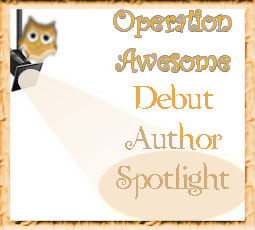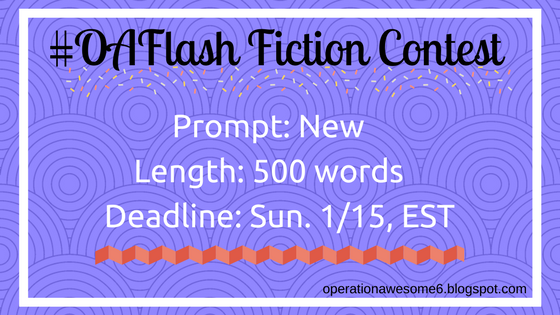
1- Can you please tell us more about the cats in Skysail?
Josh: Mentioned briefly in Vol. 1, there are three cats aboard the *Apotheosis Break*: Dill, Vinegar, and Mister Pickles. Their primary duties involve keeping the ship free of rodents, which would otherwise eat and spoil the food stores, chew through ropes and sails, and spread disease. They’re also loving, loyal companions to their shipmates. Except for Mister Pickles. There is a standing bounty on the head of Mister Pickles that hasn’t been collected in at least a decade.
2- Can one of you share a story from your life that shows who you are as a person and why you are a writer?
Josh: The only time I got a detention in school was when I sent a bomb threat.
Middle school. Everyone knew I was good with computers. I had my own web page, after all. But a new kid, Justin, had a computer lab quiz next hour. He hadn’t studied.
“Why not?” I never needed to study. I had a *web page*.
“I didn’t study,” Justin shrugged, then trilled his strange laugh.
Justin was deep into his campaign to edge me out. He and my best friend, Brennen, listened to cool music and played guitar. I didn’t. They went to the gym and played football. I didn’t. I was losing my best friend, but I didn’t want a new enemy.
We were in study hall. Not studying. If we didn’t have any work, the teacher let us go onto the Internet or make weird shapes with the 3D graphing tool. She graded papers while we experimented with equations and Google.
The teacher’s email was left open. New message.
“Say there’s a bomb,” Justin watched over my shoulder. “It’s fine.”
I hit send. Luckily, it was long before school shootings, bombings, or terrorism. The email was obviously written by a student who didn’t know how email worked. The computer lab teacher reported us. We got detention, and banned from the study hall computer.
After, I told myself that I would learn how email works. And how to not write like a middle schooler. And that detention is essentially just study hall, but after school.
3- What ignited your passions for writing?
Josh: Oh, probably the Internet. Having an outlet that wasn’t proofread was freeing. It wasn’t until a lot of years later, cringing as I looked back to whatever nonsense I was trying to accomplish that I remembered that the rules are there for a reason. Prior to Mike and I’s project, though, it was all just meandering blog posts, face-melting work emails, and lots of conspicuous files titled like, `Notes.txt`.
Mike: I spent most of my childhood on an army base in the remote interior of Alaska, and when it was —50F and pitch black outside, I took refuge in the worlds of others. Fantasy novels and roleplaying games led me to creating my own stories, first with scrawled maps on notebook paper, then cooperative writing with family and friends. The years trickled by and I found I had all these notes on a universe I so desperately wanted to play in, but nothing concrete or realized. When I welcomed my daughter into the world in 2012, it became obvious I needed to make something more permanent. As I spoke of this atop a mountain, Josh suggested we write a book. Months later, he revealed a custom-programmed writing tool, and I discovered I had made a commitment and that there was no going back.
4- Mike, what's it like being a horticulturist living in the arctic? Have you had some growing breakthroughs?
Mike: My mother was the horticulturist, though I happened to stumble upon gardening through a disjointed path; studied architecture, moved to Alaska, worked in landscape architecture, bought some land, became frustrated with 10 day old vegetables shipped to the arctic, started growing edibles. I’ve managed to get red tomatoes two years in a row in our greenhouse.
5- Josh, which do you prefer, the desert or Anchorage?
Josh: Anchorage, and Alaska, over pretty much anywhere else. My vague, irreverent author’s bio refers to my having spent some years in Arizona for school. The desert valley was a hard place. A hot place. And, at the time, I think the car theft capital of the world. In senior year my car was stolen and I ended up having to bike everywhere I went. It was so hot that my bike pedals quite literally melted off. You can dress for the cold in Alaska. But you can’t dress for being a chubby computer programmer living in an oven. But, you know, I came away with a lifelong love of cycling and a nice tan despite spending most of my time in a computer lab, so… Fond memories?
6- Who is currently your biggest fan? What does that person love most (or "ship") about your debut novel?
Mike: Our friend John has probably digested the most amount of Skysail content. But we may have coerced him with guilt-debt by supporting the Anchorage improv scene over the years. I think John enjoys and appreciates the amount of work it takes to create something from nothing.
Josh: My mom. She took me aside this last Christmas morning while nieces and nephews went to town on gifts. She gave me a look, then asked, “Aren’t you forgetting something?” And then she made me sign and write a heartfelt message in one of the printed copies I’d brought to share.
7- With fishing being such a major industry in Alaska, do either of you happen to have a recipe for a favorite fish dish?
Josh: My diet consists of yogurt, fruit, and anything else that can be blended with my beloved Vitamix. However! In the event that I get halibut, my quick-and-tasty solution is: wrap single servings of your desired fish with aluminum foil (let us call these ‘fish-pods’). Inside each fish-pod place 1) a pad of butter, 2) a healthy dash of lemon-pepper or lemon juice. Seal all fish-pods well, and bake at, say… 350? Sure. That. Until it’s done. 20 minutes? Gosh. I should stop here, otherwise I’m probably legally liable for something. You should probably ignore this one. Make whatever Mike suggests.
Mike: Do I ever. If you find yourself with a filet of King Salmon, cut it into thick strips and marinate for 30 minutes in the following:
- * 1/3 cup olive oil
- * 1/4 cup lime juice (or use a can of frozen Lime-Aide)
- * 1/4 cup soy sauce
- * 1/4 cup lemon juice
- * 1/2 teaspoon fresh grated ginger
- * 1 teaspoon rosemary
- * 1 tablespoon garlic salt
- * 1/4 tablespoon pepper
Throw it straight on a grill at 350-400F. Cooking time will vary with the thickness, but it shouldn’t take much more than 5 minutes to cook through.
8- What emotions do you hope your book will evoke for the reader, and is there a particular scene you hope will resonate with readers?
Josh: I’ll shoot for child-like wonder being dashed on the rocks of an indifferent, uncaring universe. But I’ll settle for awkward teen ennui. A scene I would call on as an example: discovering horrible motion sickness after stepping on the airship you’ve dreamed of your whole life.
Mike: We tried to create a story of adventure and of growing up. This meant writing a POV protagonist that has, perhaps, a misguided perspective. His expectations do not always meet reality, but ideally the reader can have some empathy for the eternal optimist confronting a selfish and cruel world. There is a scene in a tavern that was at once exhilarating and gut-wrenching to write. I hope the readers find that moment as compelling as I did dreaming it up.
9- What is the most memorable trait or visual oddity of one of your characters?
Josh: Cauderon, the engine room worker, is an amnesiac who can’t keep the ship’s maintenance schedules straight. He has strange powers, and wears only evening robes, or nothing at all.
Mike: If Gert Karnaugh, the first mate, isn’t chewing the end of a cigar in a particular scene, we didn’t properly set the stage.
10- Did either of you make any New Year's resolutions you can share?
Josh: Buy. `*clap*` Some. `*clap*` New. `*clap*` Clothes. `*clap*`
Mike: I’ve been battling Lyme Disease for years. I aim for 2017 to be the year I run again.
11- Is there any diversity we can look forward to in your book?
Josh: Our salty airshipmen and airshipwomen pretty equally terrible and racist towards each other. Does that count?
Mike: We’ve made a concerted effort to shape our world so as not to be defined by either traditional gender roles or demonized sexuality. The land our heroes start in is mostly a meritocracy, in that talent rises to the top, regardless of gender. That said, we also don’t make overt efforts to elucidate much on this topic. Such things are simply the way of the world.
12- Which character has your favorite Personality Contradiction?
Josh: Jonas, the ship’s engineer, doesn’t know the first thing about the ship. But he’s an airmanshipman’s airshipman, and he can talk his way into and out of any situation.
Mike: We wrote the first part of a broad story we wanted to tell, based on a world we had dabbled in, and with characters we had already become to know. When the dust settled it became apparent that a 300k word tome might be difficult to market. Skysail was split into three volumes, divided along the structure of the acts we originally penned. What was lost in Volume 1 was a character of mine that started it all. This is a roundabout way of saying I can’t really answer the question without spoiling Volume 2. I will tease that the airship is in desperate need of a hard-drinking, towheaded, organ-playing pilot.
13- As a reader, what most motivates you two to buy books to read?
Mike: I want to live in someone else’s universe. I want to baste myself in the details until I disappear into their environments and become a part of the world. If the rules are sufficiently complicated, make sense, and compliment but don’t distract from the character development, I’m in. Josh keeps my own rambling world-building to a reasonable level within Skysail, ideally satiating my own expectation for others work.
Josh: My workflow is the following. Is it by Patrick Rothfuss? If so, buy it. If not, does it check at least two the following boxes?
`[ ]` Space. `[ ]` Sad robots. `[ ]` A journey through the wreckage of human souls.
If two or more boxes are checked, buy it.
14- What was the deciding factor in your publication route?
Mike: Access. The gate-keeping to traditional publishing was demoralizing and seemingly insurmountable. With our combined skill set of programming and graphic design, self-publishing was a viable option to produce something that looked reasonably professional.
15- What is one question which you would like the readers of this interview to answer or remark on in the comments?
Josh: A creepy wizard has turned you into a skywhale. Is this awesome? Discuss.
Mike: What happened to Vasili’s father, Anton Mikhailovich?
16- Anything else you would care to share about your book and yourself?
Blurb:
> *The life of an airshipman is violent and short, but every sailor still breathing in the clouds has a tale of Anton Mikhailovich.*
> *Vasili, his fourteen year old son, never knew the man. The swashbuckling captain died mysteriously when the boy was five, leaving only tall tales and long shadows. His father’s remembrance ever looming, Vasili wants to leave his tiny frontier village and become a skysailing legend of his own accord.*
> *A charismatic traveler arrives on an airship, a bishop with robes as worn as his smile. He comes to convey a funerary Telling of Anton some nine years overdue. Late but still timely, the traveler hints that his vessel may be looking for a new deckhand. He could put in a good word for the son of Anton.*
> *The twinkling lights of home disappear over the horizon and the boy begins his own adventure, starting his own tale as he learns the truth of his father’s.*
> *But the world and its skies are nothing like Vasili’s books. The serendipitous airship is the famed Apotheosis Break, Anton’s old vessel, filled with beguiling shard hunters now at the end of their line. They have already lost good men looking for Vasili. They may still lose everything seeking the forgotten legacy of Captain Mikhailovich.*
> *Vasili will learn that the memories you try to escape are the ones you will always carry with you. And if half of what his crew says is true, his father’s story was one of loss, betrayal, and madness. If Vasili is to survive in the skies he will have to be as clever as his father and twice as lucky. Otherwise a traveler will return home with a Telling of another Mikhailovich boy.*
Author Biographies:
Josh Rhoades leads a life dancing awkwardly between quiet desperation and simple truths. He went to the desert to find himself and came back years later more machine than man; communicating strictly in beeps and boops. Rehabilitation has been slow. Everyone has been commendably patient. Every so often you look into his distant, cold eyes and it’s like there’s something there. Then the flicker is gone and he’s talking about the machine again. When Josh isn’t working on fiction he toils as a computer programmer, helping to keep the lights of your ereader flickering.
Mike Rutledge lives to create. Whether it be stories, crude renderings, or life, he seeks to find his place in this world by imprinting his asinine imagination onto any available surface. The son of an army officer and a wandering horticulturist, he never had a place to call home until meeting a woman that hauled him off to the arctic. Mike’s wife has long suffered through his parade of insolence with the undying patience only a mother of two could endure.
Both Mike and Josh hail from Anchorage, Alaska. We can be found on
[Twitter](
https://twitter.com/skysailsaga)
[Instagram](
https://www.instagram.com/skysailsaga/)
[Facebook](
https://www.facebook.com/skysailsaga/) at @skysailsaga.

































